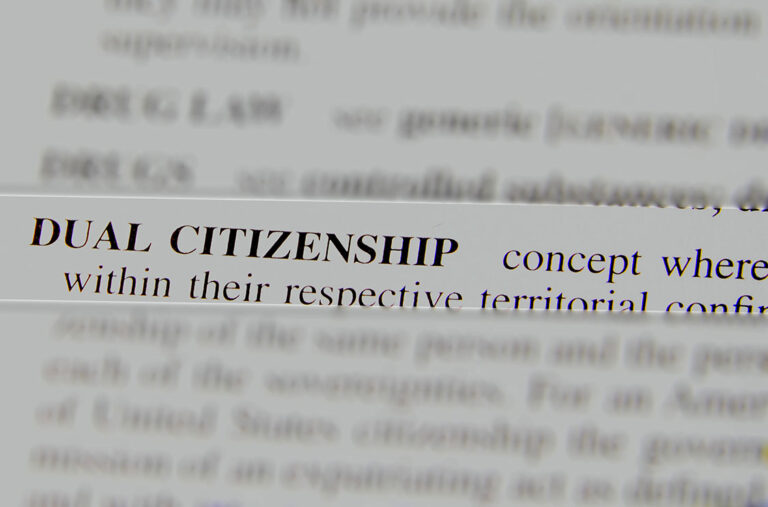Buying property abroad can be much more complicated than buying here at home. So, when Americans want to buy German property, they often have a vague sense that it’s going to be difficult.
While the distance can complicate things, Germany makes it relatively easy to buy property even if you aren’t a citizen.
But while it isn’t overly complicated, that doesn’t mean it’s the exact same. So it’s worth knowing about the process of buying property in Germany. That includes things like relevant laws, essential steps, and tax implications. And that’s precisely what we cover below.
Features of the German Real Estate Market
Buying property in Germany has proven a generally good bet for decades. It’s stable. It’s affordable. It’s supported by a healthy economy. As you might have noticed, price swings can be an issue in other EU countries, but here, prices have increased at a more moderate pace.
Maybe that reflects the country’s cautious lending culture and strong tenant protections. Or maybe it shows how a different philosophy toward home ownership creates a cooler environment for the market. After all, it’s a country where fewer and fewer people are choosing to buy. Home-ownership rates have now fallen below 50%.
This drop in ownership coincides with a decline in revenues for both the construction industry and on the investment side. So you are looking at a real estate market that is becoming more and more affordable. That’s all despite Germany being the economic engine at the heart of the EU.
That’s a much different story from the United States, where a surge in home prices from mid-2020 to mid-2022 has drastically changed the market landscape.
Legal Framework for Foreign Buyers
Unlike some countries that restrict or complicate property ownership for non-citizens, Germany places no special restrictions on foreigners purchasing real estate. Americans are generally free to buy property in Germany under the same conditions as Germans and other EU nationals.
That said, there are (at least) two aspects of German property law you should understand:
- Notary System: All real estate transactions must be recorded and authenticated by a public notary.
- Land Registry (Grundbuch): Germany maintains a rigorous land registry system. Ownership and any encumbrances (such as mortgages or rights of way) are formally registered.
Financing Your Purchase
German mortgage interest rates have historically been lower than U.S. rates, so the smart move is typically to finance with a local bank. But that can be easier said than done. Our clients have found that securing a mortgage is more challenging if you do not have residency in the EU.
If you do go the German route, lenders will typically assess:
- Creditworthiness
- Debt-to-income ratio
- Proof of stable income
- Valid identification
- Residency documents
- The property’s market value
Another option is an international bank with both American and German branches. That simplifies currency issues and gets you help both at home and abroad.
Step-by-Step: Buying a Home in Germany
Step 1: Property Search
For help with this, check online portals like ImmobilienScout24 and Immowelt.
Step 2: Engaging a Real Estate Agent (Makler)
Get an agent. They aren’t required by law, but they are experts on the ground in Germany. Why wouldn’t you want their knowledge and language skills to navigate the process? Just keep in mind the commission you’ll owe (often around 3–7% of the purchase price). Also, note that recent legislative changes have introduced a system where buyers and sellers can split this commission.
Step 3: Making an Offer
This is a verbal negotiation with the seller or the real estate agent.
Step 4: The Purchase Agreement and Notary Appointment
That verbal agreement then becomes a draft purchase contract (Kaufvertrag). You will then schedule a meeting with a public notary who will read and confirm the contract to all parties. The notary’s role is neutral—he or she is not “on your side” but checks to see that the transaction is legal.
Step 5: Land Registry (Grundbuch) Entry
The last step is entering your purchase in the Land Registry as the new owner—a process that can take several weeks.
Additional Costs
- Property Transfer Tax (Grunderwerbsteuer): Rates vary but typically range from 3.5% to 6.5%.
- Notary Fees: Generally 1–2%.
- Real Estate Agent Commission (Maklerprovision): Depending on state regulations and negotiation, it can range between 3% and 7% (plus VAT). Make sure you know if you will split the commission with the buyer.
- Surveyor or Valuation Fees: Independent valuation and surveys are sometimes part of a property purchase.
- Legal Advice: This isn’t mandatory. But if you are making a major purchase in a foreign country that doesn’t operate in your first language, it’s highly recommended to have representation and advice.
Tax Implications and Ongoing Costs
Property Ownership Taxes
In addition to the one-time property transfer tax, you will also be subject to an annual property tax (Grundsteuer). This amount is relatively modest compared to property taxes in some parts of the United States.
Rental Income and Capital Gains
If you plan on renting out the property, any rental income will be subject to German taxation. Double-check the status of the Germany-U.S. tax treaty to ensure you do not overpay taxes in both countries.
Generally, Germany has primary taxing rights for rental income, but you are still required to report it on your U.S. tax return, where you can often claim foreign tax credits. Learn more about taxation here.
Inheritance and Gift Taxes
Be mindful of Germany’s inheritance and gift tax system if you plan to pass on the property to family members. The tax rate can vary widely depending on the relationship between the parties and the property’s value.
Welcome to Property Ownership, German-Style
Now you own property in Germany. So, chances are you want to learn more about the country. Check out our resources on becoming a dual U.S.-German citizen.





